Is it Safe to Live in a House With Termites? Complete Guide
When it comes to sharing your home with termites, the question arises: Is it safe to live in a house with termites? Well, picture this – on one hand, these silent destroyers can wreak havoc on your property without you even noticing. On the other hand, the thought of cohabitating with these wood-munching pests can be quite unsettling. So, let’s dive into the nitty-gritty and explore whether having termites as housemates is a risk worth taking.
Termites might seem harmless at first glance, but their insidious nature can turn your dream home into a nightmare. Join me as we uncover the truth about living alongside these uninvited guests and discover if there’s a silver lining in this termite-infested cloud. Let’s separate fact from fiction and find out if peace of mind can truly exist in a termite-ridden abode.
Key Takeaways
- Understanding Termite Risks: Being aware of the risks associated with termites can help you take proactive steps to protect your home.
- Structural Dangers: Termites can cause significant damage to the structure of your house, compromising its safety and integrity.
- Health Risks: Termites can contribute to mold growth, which can lead to respiratory issues and other health concerns for you and your family.
- Early Damage Control: Addressing termite infestations promptly can prevent extensive damage and costly repairs in the future.
- Eliminating Termites: Taking decisive action to eliminate termites from your home is crucial to safeguarding your property and ensuring a pest-free environment.
- Preventing Reinfestation: Implementing preventive measures after termite treatment is essential to avoid future infestations and protect your home in the long term.
Understanding Termite Risks
Termite Species
Termites come in various species, with subterranean termites being the most common and destructive. These pests thrive in moist environments and can cause extensive damage to wooden structures. Drywood termites, on the other hand, infest dry wood and are harder to detect due to their ability to live without soil contact.
Silent Nature
Termites are known for their silent destruction, feeding on wood from the inside out. By the time signs of infestation become visible, significant damage may have already occurred. It’s crucial to address termite infestations promptly to prevent costly repairs.
Professional Inspections
Engaging professionals in termite inspections is essential for the accurate detection of infestations. Experts have the knowledge and tools to identify early signs of termite activity that may go unnoticed by untrained individuals. Regular inspections can help prevent severe damage to your property.
Structural Dangers
Recognizing Signs
Termites can cause severe structural damage to wooden structures in homes, compromising their stability. Look for hollowed wood, as it indicates termite activity and potential harm. mud tubes along walls or foundations are clear indicators of a termite infestation.
I once noticed a small pile of what looked like sawdust near my window frame. Upon further inspection, I discovered it was termite droppings, prompting me to take immediate action.
Assessing Risk
The presence of termites raises concerns about the integrity of support beams and joists within a house. These components play a crucial role in maintaining the structural stability of a home. When termites target these load-bearing elements, they weaken the entire framework.
I remember feeling uneasy when I realized that the termites had infested the support beams in my attic. It made me realize how quickly these pests could compromise the safety of my home.
Importance of Support Beams and Joists
Support beams and joists are essential for distributing weight evenly throughout a structure. When termites feed on these components, they can lead to sagging floors, ceiling cracks, and even structural collapse. Regular inspections and prompt treatment are vital to safeguarding these critical parts of a house.
One time, during a routine inspection, I found termite tunnels on one of the support beams in my basement. It highlighted the urgency of addressing the issue before it escalated further.
Moisture Issues
Existing Problems
Address existing moisture problems promptly to reduce the risk of termite infestations. Water issues in a house can attract termites due to the conducive environment it creates for them.
Moisture not only attracts termites but also contributes to mold growth and wood decay, leading to structural damage. To prevent this, ensure proper ventilation and fix any leaks promptly.
Impact on Termites
Higher moisture levels in a house can worsen termite infestations as they thrive in damp environments. Soil contact with wooden structures combined with moisture creates an ideal scenario for termites to flourish.
Excess moisture can soften wood, making it easier for termites to feed on and cause more significant damage. Regularly inspecting for signs of water damage is crucial in preventing termite attacks.
Prevention Strategies
Recognize the critical link between moisture control and preventing termite damage. By maintaining low humidity levels and addressing water leaks promptly, you can deter termites from infesting your home.
Pros:
- Prevents termite infestations
- Reduces risk of structural damage
Cons:
- Requires regular maintenance
- This may involve repair costs if issues are identified.
Ignoring Termite Problems
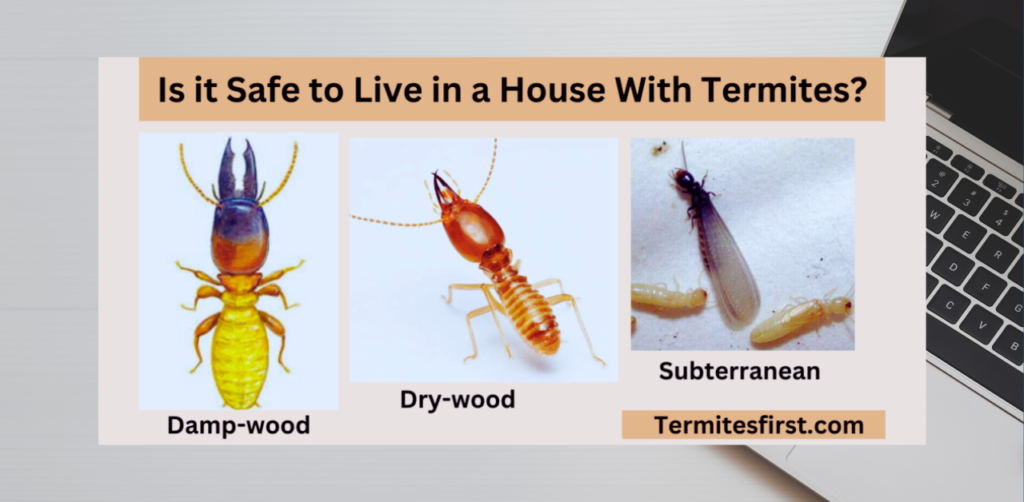
Long-Term Consequences
Ignoring termite infestations can lead to severe long-term consequences. Termites silently eat away at the wooden structures in your home, causing irreversible damage over time. If left untreated, these pests can compromise the integrity of your house.
I once ignored a small termite issue in my attic, thinking it was insignificant. However, over time, the problem worsened, leading to significant structural damage and costly repairs. Prevention is key when dealing with termites.
Risk of Structural Collapse
Failure to address termite problems poses a serious risk of structural collapse. Termites feed on wood relentlessly, weakening beams, walls, and foundations. This gradual destruction can jeopardize the stability of your home and put occupants at risk.
When I finally addressed the termite infestation in my basement, I was shocked to learn how much damage had been done beneath the surface. It reinforced the importance of regular inspections and swift action against these destructive pests.
Health Hazards and Safety Risks
Neglected termite issues not only affect your home’s structure but also pose health hazards and safety risks. Termite droppings and debris can trigger allergies and respiratory problems in residents. Weakened structures increase the likelihood of accidents.
I remember a friend who developed allergies due to prolonged exposure to termites in her home. The health implications were a wake-up call for her family to prioritize pest control measures promptly. Regular maintenance is crucial for a safe living environment.
Health Risks
Allergies and Asthma
Termites can indirectly impact health by triggering allergies and worsening asthma symptoms. The presence of termites leads to the release of airborne debris, which can exacerbate respiratory conditions. Individuals with existing respiratory issues, like asthma, may experience heightened symptoms due to the allergens produced by termites.
Sick Building Syndrome Symptoms
Symptoms of Sick Building Syndrome can arise from termite infestations, affecting individuals living in such environments. The syndrome is characterized by various non-specific symptoms such as headaches, dizziness, and fatigue. Poor indoor air quality resulting from termite activities can contribute to these discomforts.
Personal Insights
In my experience, living in a house with undetected termites resulted in persistent coughing and breathing difficulties. Seeking professional help early on not only improved our health but also prevented further damage to the property. It’s essential to prioritize regular inspections to ensure a safe living environment for you and your family.
Early Damage Control
Immediate Measures
Upon detecting termite signs, take immediate action to limit significant damage. Begin by sealing cracks and crevices where termites can enter the house.
Consider using termite baits or insecticides to control the infestation. These methods can help in reducing the population of termites within the property.
Professional Intervention
Seeking professional help is crucial for effective early termite control. Pest control experts can assess the extent of the infestation and recommend appropriate treatment.
Professional intervention ensures that repairs are conducted promptly, preventing further damage to the structure of the house.
Importance of Swift Action
Swift action is key in minimizing structural harm caused by termites. Delaying treatment can lead to extensive damage, requiring costly repairs.
Regular inspections and early detection play a vital role in maintaining a termite-free home environment.
Eliminating Termites
Targeted Treatments
When dealing with termite infestations, it is crucial to employ targeted treatments based on the specific species present in the home. Different types of termites require different approaches for effective eradication. For instance, subterranean termites might need bait systems, while drywood termites could be addressed with localized spot treatments.
Thorough Eradication
Thorough eradication of termites is essential to prevent reinfestation and further damage to the property. Hiring a professional pest inspector or undergoing a comprehensive home inspection can help identify the extent of the termite activity and determine the most suitable eradication methods. I once had a termite problem, and investing in a thorough eradication process saved me from recurring issues.
Preventive Measures
In addition to eliminating existing termites, implementing preventive measures is key to safeguarding your home against future infestations. These measures may include maintaining proper ventilation, addressing moisture issues, using termite-resistant materials during construction, and scheduling regular inspections by professionals. I learned the hard way that prevention is far less costly than treating an established termite problem.
Preventing Reinfestation
Regular Inspections
Regular inspections are crucial in preventing termite reinfestation. By conducting frequent checks, you can detect any early signs of termite activity and address them promptly. Inspect both the interior and exterior of your home for any pests.
Maintaining a schedule for inspections ensures that you stay proactive in protecting your home from termites. Look out for mud tubes, damaged wood, or discarded wings, as these are indicators of termite presence. Addressing issues early can prevent costly damage later on.
Professional Advice
Seeking professional advice on long-term strategies for preventing termite return is highly recommended. Pest control experts can provide tailored solutions based on your property’s specific needs and vulnerabilities. They may recommend soil treatments or barrier systems to keep termites at bay.
When I faced a termite infestation, consulting with a pest control specialist gave me peace of mind, knowing that my home was being protected effectively. Their expertise and guidance helped me implement preventive measures that kept termites away for good.
Professional Help
Pest Control
Seek professional assistance for accurate termite identification and treatment. A professional inspection by a qualified home inspector can pinpoint the extent of the infestation. Contact experts to effectively deal with termites, ensuring the safety of your property.
Consulting professionals for termite management offers various benefits. They have the expertise to handle termite issues efficiently. Experts provide tailored solutions based on the specific needs of your home, preventing reinfestation effectively.
Benefits
Expertise: Professionals have in-depth knowledge about termite behavior and effective treatment methods.
Efficiency: Professional pest control services offer quicker and more thorough solutions compared to DIY approaches.
Long-term Protection: By engaging experts, you ensure long-lasting protection against termites, safeguarding your property.
Engage with a licensed pest control company to make direct contact with experienced professionals. Homeowners often underestimate the damage termites can cause over the years. Seeking expert help is crucial for effective termite eradication.
Tailored Solutions
When facing a termite infestation, reaching out to professionals is the best way forward. Experts can assess the situation accurately and recommend appropriate treatments. Many people opt for professional services when selling their homes to ensure a termite-free environment for potential buyers.
Professional pest control companies work closely with lenders during property transactions to promptly address any termite issues. Direct contact with experts ensures that termite problems are resolved before they escalate further.
In my experience dealing with termites in my house, seeking professional help was instrumental in eradicating the infestation completely. The peace of mind that comes from knowing your home is free from these destructive pests is invaluable.
Conclusion:
After exploring the risks of termite infestations, it’s crystal clear that these critters can wreak havoc on a home. From structural damage to health risks, termites are no joke. Ignoring the problem is like playing with fire – it’ll burn you in the end. Early detection and swift action are key to minimizing the destruction caused by these tiny terrors.
To safeguard your home, don’t wait until it’s too late. Get professional help, eliminate those pesky termites, and take preventive measures to keep them at bay. Remember, an ounce of prevention is worth a pound of cure. Don’t let termites turn your dream home into a nightmare! Stay vigilant and protect your sanctuary from these silent destroyers.
Related: What Do Termite Bites Look Like?
FAQ’s:
Living in a house with termites can pose risks to both the structure and your health. It is crucial to address termite infestations promptly to prevent further damage.
Termites can cause significant structural damage by feeding on wood and weakening foundations, floors, and walls. This can compromise the safety and integrity of your home.
Termites are attracted to moisture-rich environments as they need water to survive. Addressing moisture problems like leaks or standing water can help deter termite infestations.
While termites themselves do not pose direct health risks, their presence can lead to mold growth, which can trigger respiratory issues and allergies in some individuals.
Effective termite elimination involves professional treatment methods such as baiting systems, liquid treatments, or fumigation, depending on the severity of the infestation. Regular inspections are also key for prevention.
To prevent termites from returning, maintain proper ventilation, fix any plumbing issues causing moisture buildup, remove wood debris near your home, and schedule regular termite inspections by professionals.


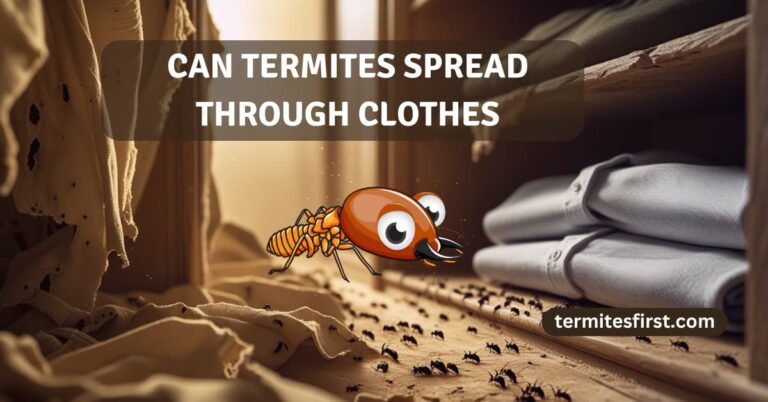
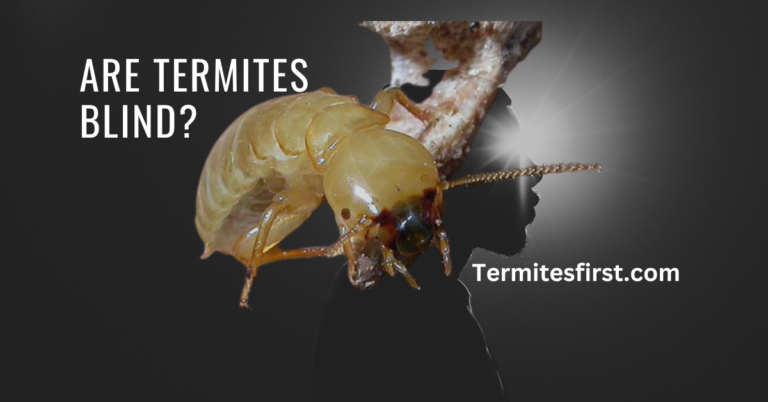
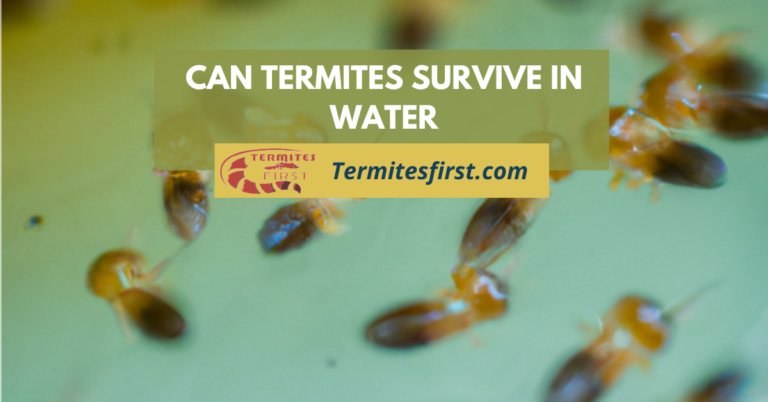
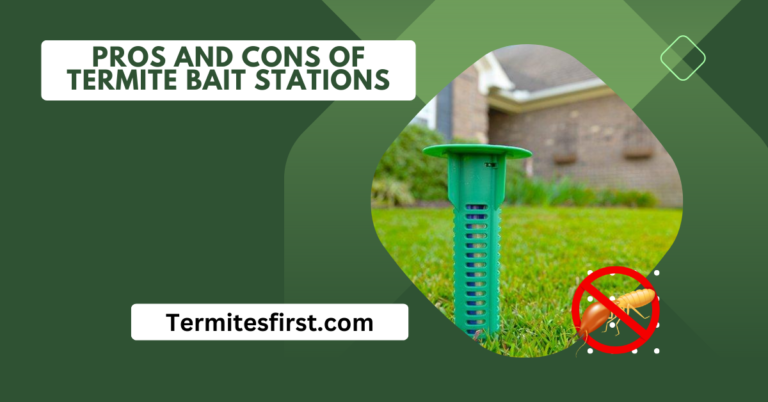
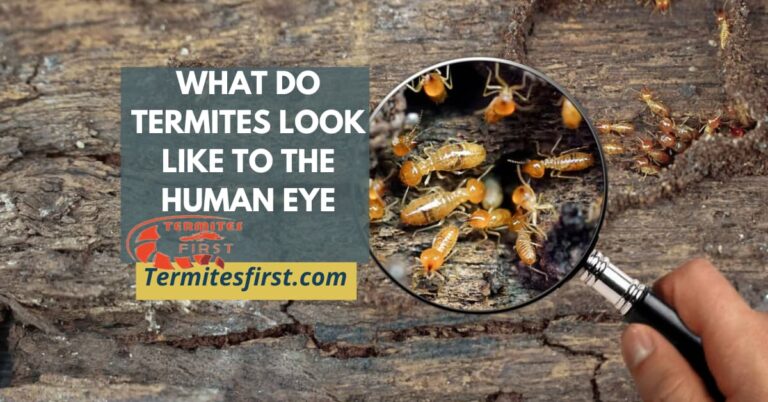
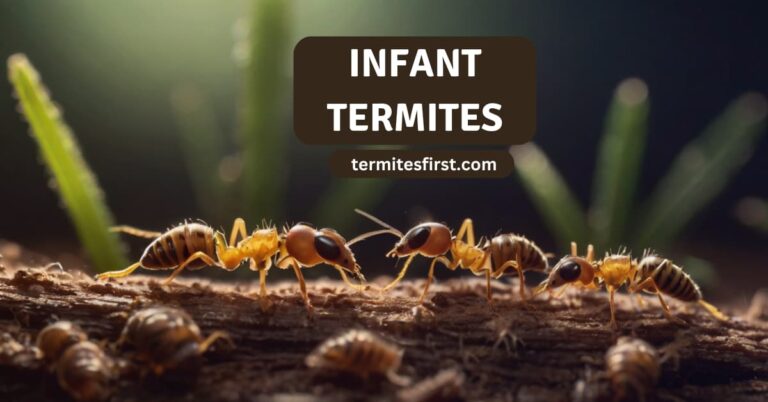
10 Comments